The air is crisp with the scent of pine, and the rugged mountain landscape stretches out before him, untouched and wild. His cabin, constructed from logs he likely felled and shaped himself, stands as a testament to his resilience in the face of a harsh frontier. The sounds of rushing water from the nearby creek mix with the occasional calls of birds, while the towering peaks in the distance seem to keep watch over the settlement.
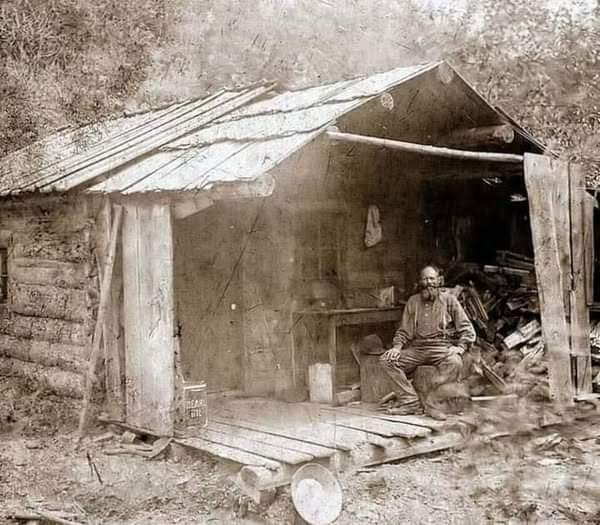
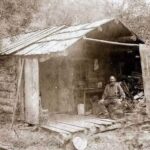
The man, perhaps a prospector, miner, or homesteader, leans back in his wooden chair, his worn hands resting on the armrests. His clothes show signs of years of hard labor: a faded woolen shirt, trousers covered in dust, and heavy boots, scuffed from many miles traveled through the rugged terrain.
His weathered face tells the story of someone who has spent countless hours under the sun, his features set in quiet contemplation. He gazes out toward the horizon, his eyes scanning the wilderness as if waiting for something, or perhaps just savoring the stillness of the mountain air.
In the distance, the quiet town of Murray begins to take shape, a scattering of wooden structures, the heart of the local mining industry. It was in this remote corner of the world that men like him sought their fortunes, driven by the lure of gold and the promise of a better life.
Yet, for the moment, the man seems content in his solitude, far from the bustling claims and hopeful miners. The cabin, nestled in the valley and tucked away from civilization, offers peace amid the harsh and unpredictable wilderness of the Idaho Panhandle. The world is still, but the man knows that in these mountains, silence can sometimes be a prelude to the unknown.


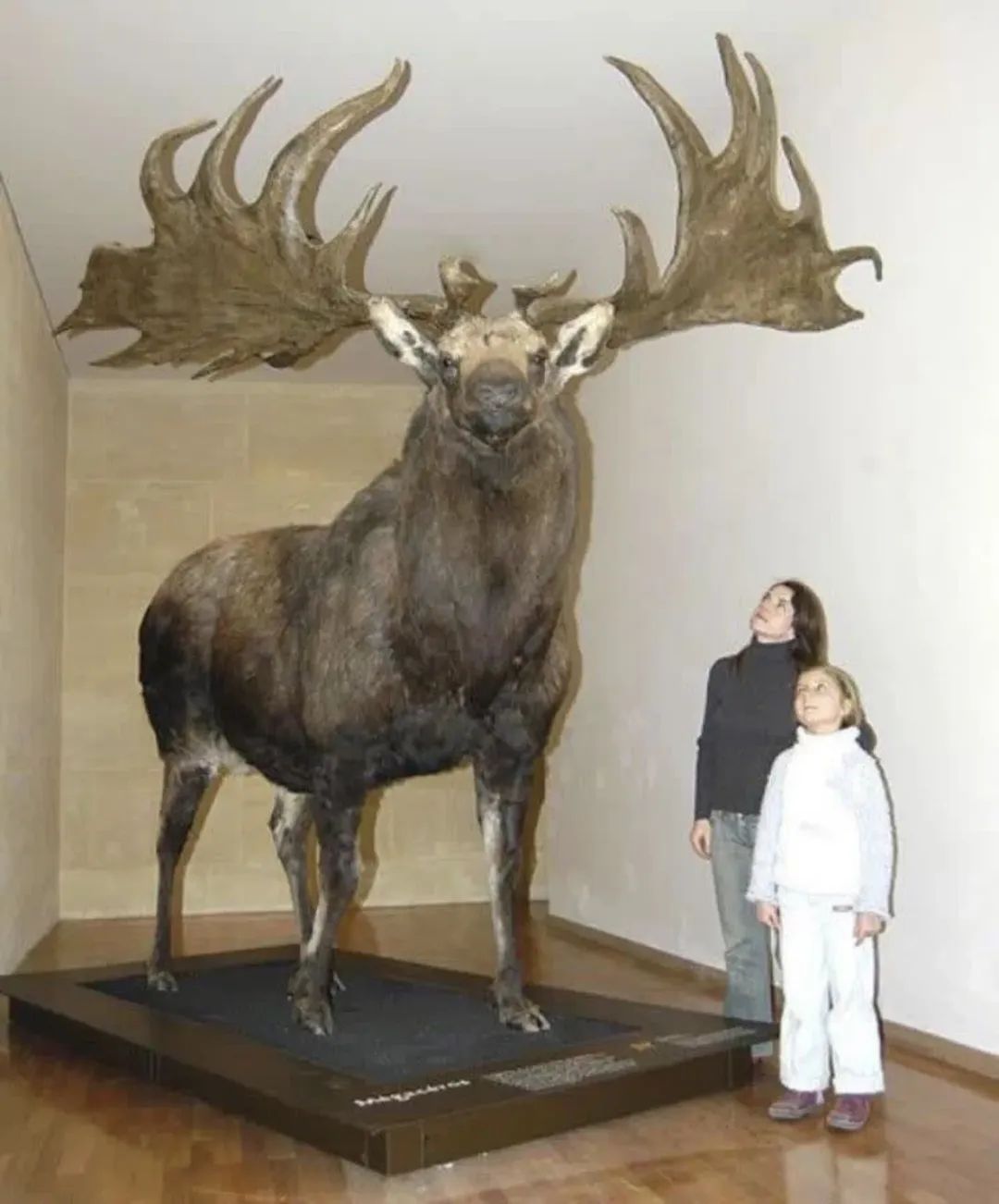
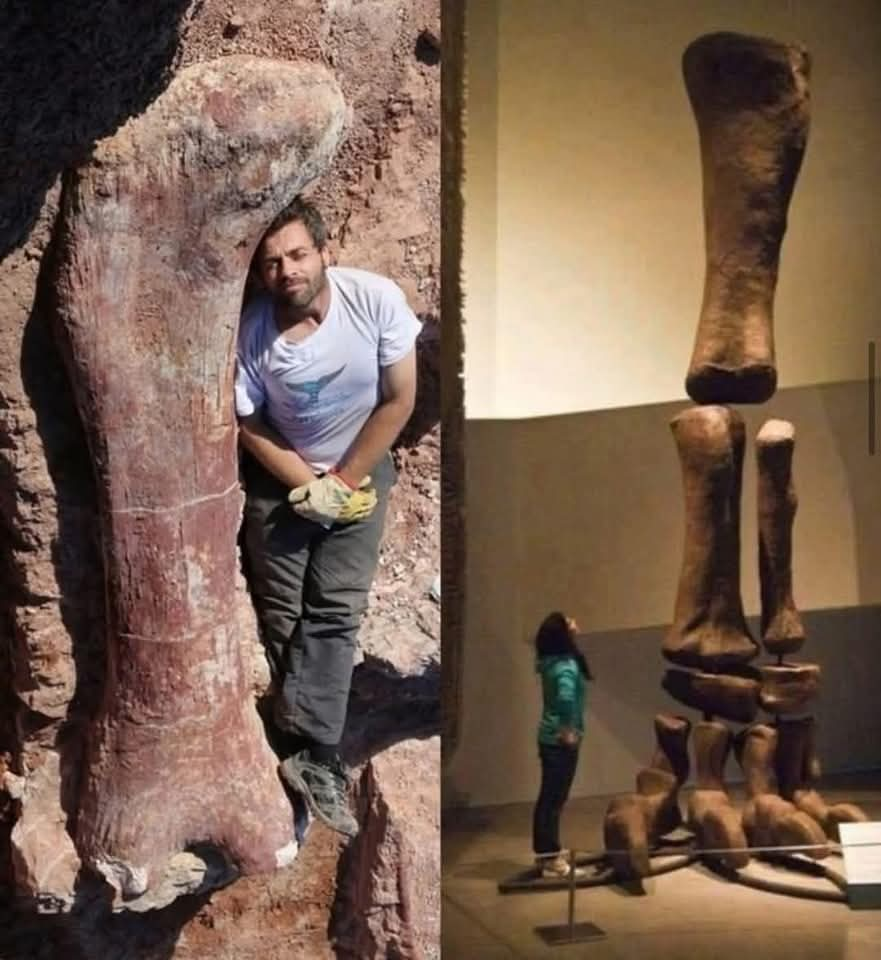
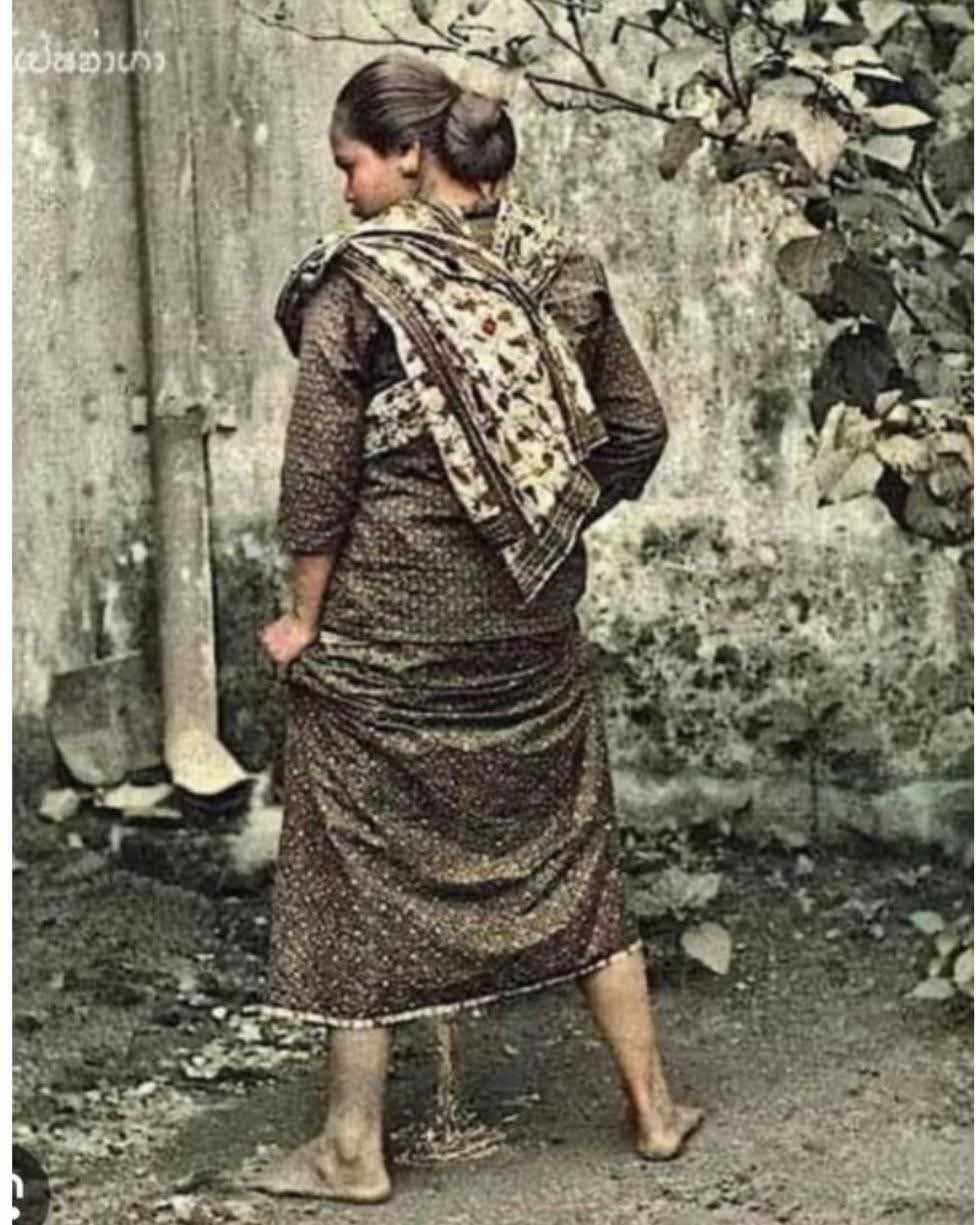

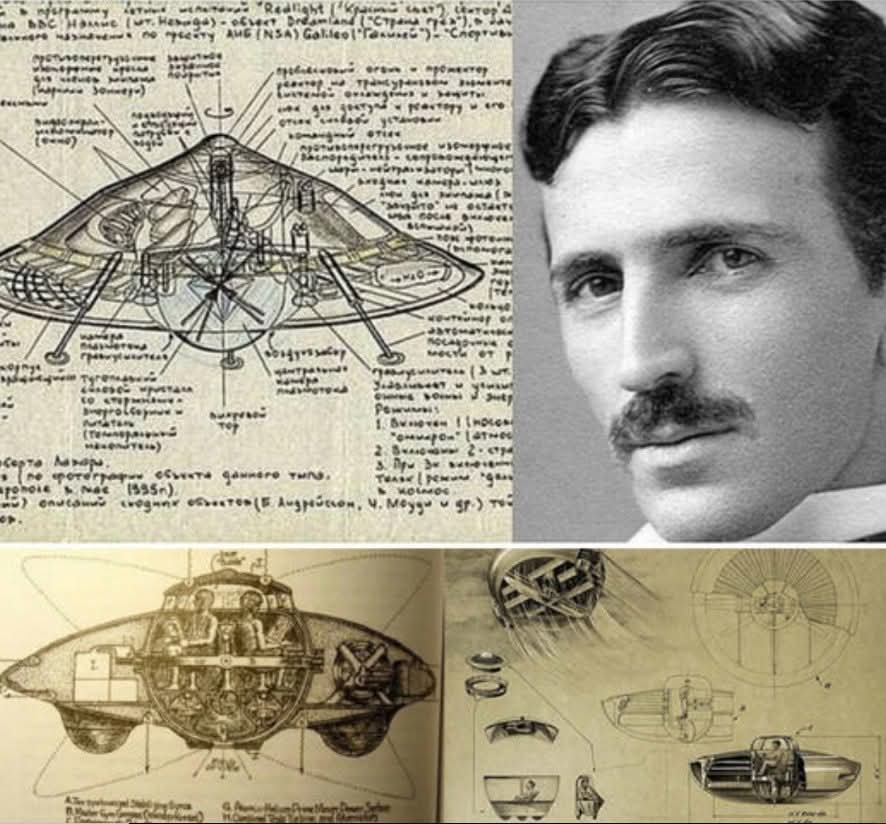
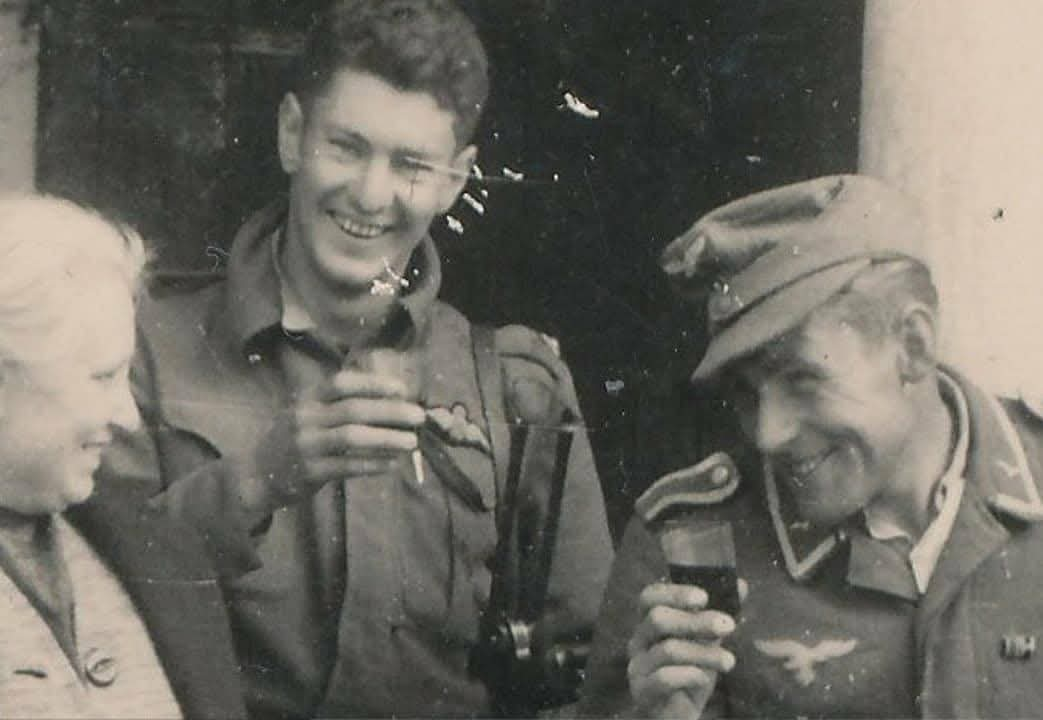
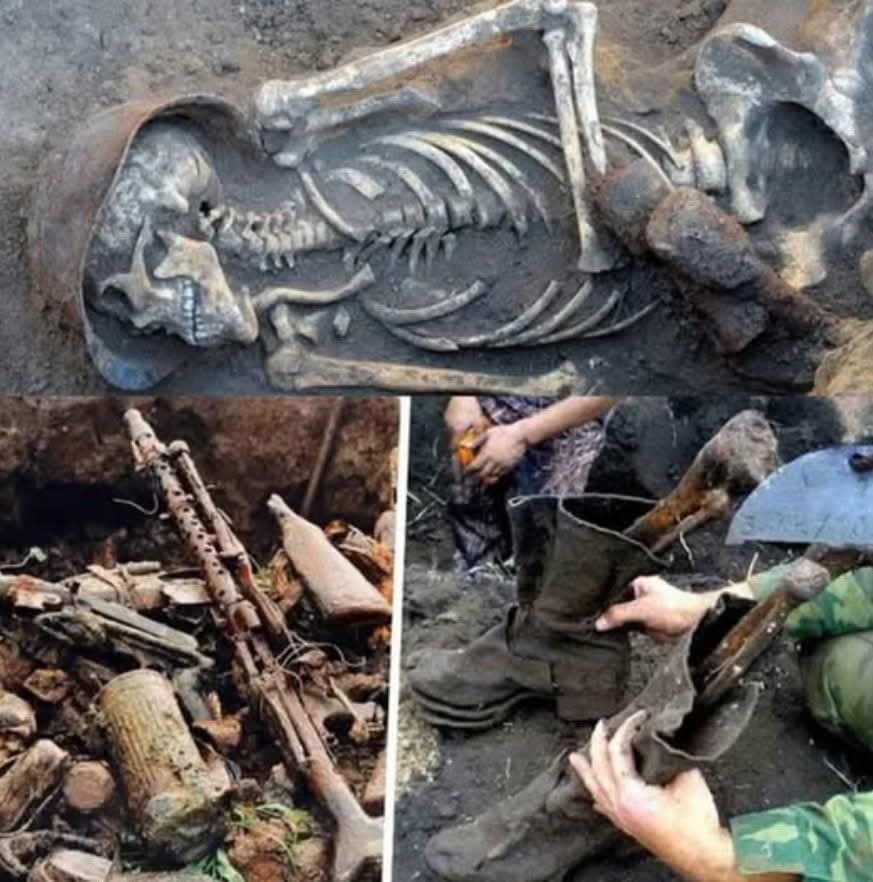
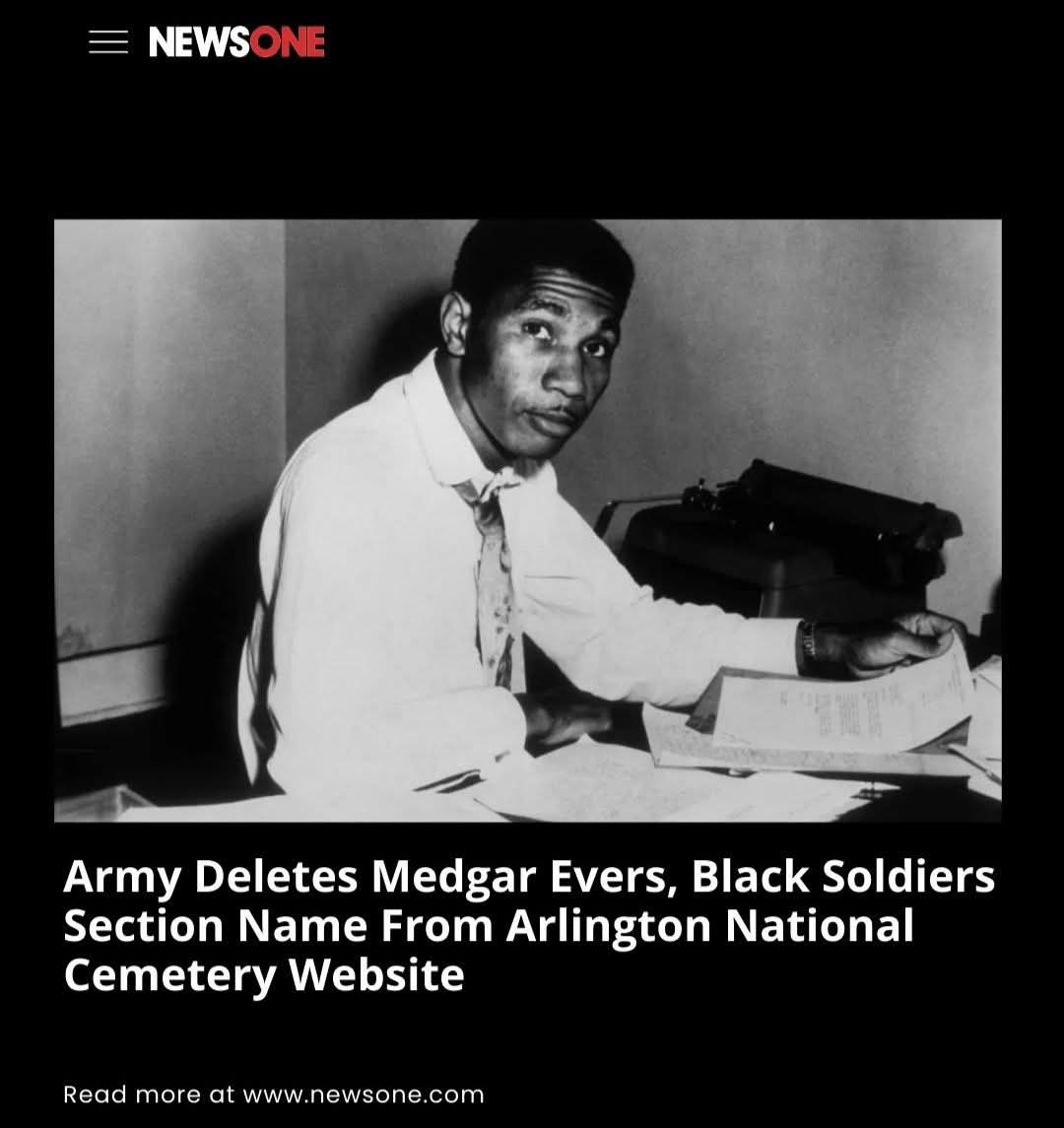
Leave a Reply